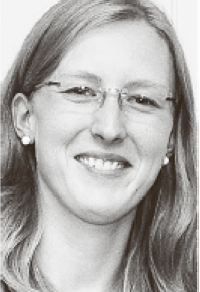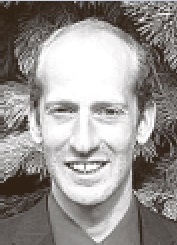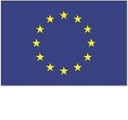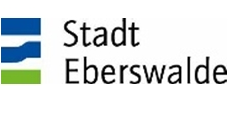Careers - Alumni
Sönke Kreft

Bachelor degree / Faculty / Year:
Bachelor of Science Agricultural Science, Environment and Resource Management / Agricultural Science, University Göttingen / 2007
Master degree / Year:
Master of Science Global Change Management / 2010
Research semester / Topic / Content / Position:
MunichRe / Report about global adaptation costs / conceptualization of an exhibition about climate change
Master thesis / Topic / Content:
An Incentive Mechanism to Cover Chronic Climate Hazards in Vulnerable Countries
Employer / Name / Field of work:
- Germanwatch e.V. / Senior Advisor Climate and Insurance / international climate policy â adaptation, insurance solution
- United Nations University / Research Associate / monitoring and concepts of evaluation, United Nation Framework Convention on Climate Change (UNFCCC) negotiation support
- Executive Director at Munich Climate Insurance Initiative
What do you have to do in your job?
Currently, I work for two different employers - a constellation which resulted from cooperation between the Non-Governmental Organization (NGO) Germanwatch and the United Nations University.
For three years, I have been working for Germanwatch. Together with Sven Harmeling and Alpha Kaloga, we deal with different topics regarding adaptation to climate change. The main focus is directed towards lobbying at international climate negotiations. There, my colleague coordinates the work of the climate action network (coalition of environmental and development organizations). Besides, there are many exciting tasks which evolve from the daily project management. They range from strategic work and lobbying for international adaptation funds to educational work.
Moreover, Germanwatch is member of the Munich Climate Insurance Initiative (MCII) â an initiative which pushes the implementation of risk management and insurance approaches; a topic which is demanded especially by the small island states. The administration of MCII is resided at the United Nations University.
MCII just started a new project in the Caribbean together with international and regional partners. They try to implement micro insurance systems as adaptation measures in different countries e.g. Jamaica, Belize or Saint Lucia. I am coordinating the monitoring and evaluation concept for this project. It is a fascinating topic because until now there is no institutional framework for the evaluation of adaptation performance.
What were and are new challenges for you after your studies / in your job?
The induction into new topics and the responsibility were the biggest challenges. Many of the first tasks didnât include transfer but rather a development of totally new strategies and ideas. Especially the preparation period for the climate negotiation in Copenhagen was very intensive.
What did you have to acquire additionally?
Especially structures and expertise about the UNFCCC as well as the general knowledge on project management.
How did GCM prepare you for your job?
The GCM times as well as the career entry were characterized by a constant excitement. While studying we learned a lot but did even more. The broad range of GCM had a beneficial effect in my work. It was important for my development to work with so many partners from practice.
How can one find the right employer?
In my experience: try to do something and apply your knowledge â the possibilities will follow.
What was your motivation to study GCM and how did it change?
My original motivation â especially the preparation of the agricultural sector on climate change ergo adaptation â is reflected by my choice of job although the agricultural sector isnât the focus anymore. In contrast to 2007, I now have much more experience with political and institutional systems as well as with impacts of climate change at first hand by field visits. Previously I did not feel the cognitive dissonance between urgency and possibility so much. The big steps are far away but small steps bring us forward nevertheless. The sprinter motivation in my studies was replaced by one of a marathon runner.
Julia Huscher

Bachelor degree / Faculty / Year:
Bachelor of Science Forestry Science / 2008
Master study / Year:
Master of Science Global Change Management / 2008
Research semester / Topic / Content / Position:
Indian environmental organization âCentre for Science and Environmentâ (CSE) in New Delhi, field of climate policy and journalism, research project about Reducing Emissions from Deforestation and Degradation (REDD) and indigenous land use rights; Down to Earth/ Center for Science and Environment
Master thesis / Topic / Content:
Master thesis on social-science oriented aspects of climate adaptation in Germany (Sinus-Milieus, psychological action model); qualitative empirical case study in cooperation with the Ecolog-Institute Hannover; Ecolog-Institut / Sinus Institut / KLIMZUG-NORD
Employer / Name / Field of work:
- GIZ GmbH, energy policy consultation for sub-Saharan Africa (Brussels representation); GIZ / EUEI
- Senior Police Officver at Health and Environment Alliance (HEAL)
What do you have to do in your job?
Currently, I am working as an intern for the EUEI PDF and I am supporting the team on research and project management in the fields of policy consultation for sub-Saharan Africa. The main focus is renewable energies, biomass and rural electrification.
What were and are new challenges for you after your studies / in your job?
The biggest challenge is for me to establish myself within the new field of development cooperation. I donât know if I will continue in this field or if I will join the NGO world or another form of policy consultation.
Were there difficulties?
Difficult was the unfamiliar fixed hierarchy. I have already made a little faux pas. But in the long term, I only can imagine to work in a team with egalitarian discussion and decision culture. It was difficult for me to accept my colleague`s way of thinking with my natural science background and as eco-political activist.
Which competencies did you need for the entry in the professional life?
This question is not easy to answer from my position as intern. Firstly the usual: fast work in, ability for team work, EDP and a little expert knowledge but also expertise about the EU agents and the discourses on development policy.
What did you have to acquire additionally?
Maybe economic knowledge, competencies on project management regarding projects with economic research questions and investment policy, language skills in French, knowledge about the discourses on development policy.
How did GCM prepare you for your job?
We had a seminar together with the Nature Protection Association Germany (NABU) on ways of political influence e.g. on European level. Maybe, I should have done the GIZ elective course. In the end, my research semester in India qualified me for my current position. For this internship, I am more than good prepared but unfortunately I wasnât able to contribute my knowledge e.g. about climate policy.
How can one find the right employer?
Ask friends who know someone with experience; try on your own, set priorities.
What was your motivation to study GCM and how did it change?
I was interested to really understand climate change and I felt the urgency to fight against the global environmental change. With my knowledge and my experiences which I gathered in that time, the feeling of urgency increased. But reality of power constellations, processes and organizational structure make it difficult to be also as motivated as in the beginning. Then it is important to remember awareness in the studies â and keep on networking with others.
Johannes Enssle

Bachelor degree / Faculty / Year:
Bachelor of Science International Forest Ecosystem Management / Faculty of Forest and Environment / 2002
Master study / Year:
Master of Science Global Change Management / 2006
Research semester / Topic / Content / Position:
Reducing Emissions from Deforestation and Degradation (REDD), Ăkoinstitut e.V., Berlin
Master thesis / Topic / Content:
âMehr Wildnis wagen fĂŒr die UrwĂ€lder von morgen? â eine Diskursanalyse zum 5 % Ziel der nationalen BiodiversitĂ€tsstrategie
Employer / Name / Field of work:
- Forestry Officer at the NABU Federal Association, Berlin
- Forestry Officer at the NABU Baden-WĂŒrttemberg, Stuttgart
- Chairman of the Naturschutzbund Deutschland (NABU) e. V. State Association Baden-WĂŒrtemberg
What do you have to do in your job?
As forest speaker of the NABU I am responsible for all forest-related topics. My job is to make sure politicians and society understand the importance of nature conservation and that forests are precious habitats for various animals and plants. This means that I get involved with politics that I speak with members of the parliament and representatives of forestry and comment critical on legislative bills. At the same time I seek the dialogue to the foundation: in a small project we bring together voluntary helper with owners of private forest on local level to discuss how to enhance the nature conservation within the forest. Thereby, we want to decrease the fears of contacts between environmental activists and forest owners.
What were and are new challenges for you after your studies / in your job?
Studies are one thing, employment something else. While studying I had the opportunity to go deeper into some topics whereas the work in the political daily routine of a big environmental NGO is very fast-moving and trigger-oriented. It is rich in variety and the contact to the media and the exchange with other political agents is fun. If you want to change something you really have to work hard and invest much time into your job.
The biggest challenge was to harmonize job and family. My little daughter helps me to remember the important things in life.
Which competencies did you need for the entry in the professional life?
Openness, curiosity, pleasure of political communication and well-structured employment.
What did you have to acquire additionally?
The range of topics is tremendous from legislative over supply chains of wood raw material to the ecology of the hermit beetle (JuchtenkĂ€fer). You have to be ready to learn all your life if you donât want to be intimidated by the complexity of the globalized world.
How did GCM prepare you for your job?
For me, a mixture of applied natural sciences and politics was the right thing. GCM cares about the most urgent problems of human kind. But I would have been happier if we had learnt more about methods although I have used my research semester to improve that. The curriculum has been improved since my graduation and maybe changed in that point. I come from the field of forest and a course about juridical and economical basic knowledge would have been helpful.
How can one find the right employer?
I think you should not constrict yourself in choice of topics and jobs. I thought that I would absolutely work on international forest and climate protection (REDD) but then I realized that forest and nature protection policy in Germany and on European level is as interesting as on international level. I am satisfied with that. At the same time, I think it is possible that I will work in a completely different field someday. That enriches life.
What was your motivation to study GCM and how did it change?
I wanted to know more about the topic. In my job at that time I felt that these topics are important and that we know so little about the complex nature of global change. GCM has its finger on the pulse of the time and offers great job opportunities. I am still in contact with some people who I met then. But I would recommend to check it out first for a few days because this topic brings a lot of complexity. There are no simple solutions. GCM prepares you for the point of intersection between global change and politics. If you donât want to work in the field related to politics, maybe you should choose an environmental science study program because despite all science, politics is often irrational.
Carina Zell-Ziegler
Bachelor degree / Faculty / Year:
Bachelor of Science in Geoecology and Ecosystemmanegement at the University of TĂŒbingen / 2010
Master study / Year:
Master of Science Global Change Management / 2013
Master thesis / Topic / Content:
Master thesis in close collaboration with Germanwatch
Employer / Name / Field of work:
- Project assistent at arepo consult
- Scientifiv assistant at Ăko-Institut in the field of Energy and Climate protection
About GCM
What I liked most about the international study programme Global Change Management was the link to partner institutions like Potsdam Institute for Climate Impact Research (PIK), GIZ, the NGOs Germanwatch and NABU and others. At seminars led by these institutions I gained a lot of insights into their work and even got the chance to write my master thesis in close collaboration with Germanwatch. I also enjoyed other aspects of the applied character of the study programme as we had some nice excursions and did a lot of project work during classes. Another asset of GCM is its international and interdisciplinary profile because thereby you get to know a lot of other perspectives and strategies on how to cope with global change.
Eric Fee
Bachelor degree / Faculty:
Bachelor of Science International Forest Ecosystem Management / Faculty of Forestry and Environment
Master study:
Master of Science Global Change Management
Employer / Name / Field of work:
German Federal Environment Agency (UBA) / Climate Change Division
What do you have to do in your job?
I plan, advertise a vacancy and supervise resort relevant research fields. I use the result to advise the UBA and the BMU regarding international climate policy and to develop an informed UBA-position. Furthermore, I represent the BMU/Germany in European expert groups on technical topics of the UNFCCC in support of the European Council's working party on international environmental questions â climate change.
In everyday life it means: coordination and cooperation; to write and to process memoranda, notes, interviews and speeches for the UBA; to write and process position papers, submissions, background papers for the European Union; to plan side events and presentations; to attend project meetings, expert group meetings, delegation meetings, UNFCCC negotiations and workshops.
What were and are new challenges for you after your studies / in your job? Were there difficulties?
We have been trained at the point of intersection between science and politics while studying but for me it is hard to handle the frustration and to turn it into passion. Another challenge is to do a good job without working overtime. Furthermore, it is challenging to maintain perspective on the complexity of climate negotiations and if necessary, to put my foot down.
Which competencies did you need for the entry in the professional life?
- Knowledge of climate science (in the interview they wanted to know things about effects, vulnerability and adaptation)
- Climate policy (at least the general knowledge about the convention on climate change and the Kyoto protocol)
- See important links with other processes and global problems as well as with other policies
What did you have to acquire additionally?
Consolidation of knowledge about the convention on climate change and also about other related topics; writing of brief texts in German and English to illustrate complex topics; understanding of the institutional jungle (a never ending story â see Das SchloĂ by Franz Kafka).
How did GCM prepare you for your job?
As a generalist, I think I am well prepared. No one expects that you know everything. New topics evolve and it is important that you can work your way into it, identify linkages and analyze synergies. The mixture of natural and social aspects of global problems in the study program was important. I often work on technical topics like how certain policy influence the atmosphere and what a certain raise in temperature means for different countries â for that you need the natural scientific background. On the other site, you have to know how to come to a compromise because there are advantages and disadvantages for every member state with every negotiation option. We learned tools for that in the study program â e.g. to moderate discussions, to plan project meetings, to write brief reports and to handle no at all perfect framework conditions like uncertainties and lack of time.
How can one find the right employer?
I think everyone has to know one's own mind. As Global Change Manager, one should search for points of intersection, where different thinking is needed e.g. at meta level. Concrete employers could be: Think tanks, ministries (BMBF, BMU, BMZ, BMELV), European Environmental Agency, European Commission, organizations for development cooperation, environmental NGO, international organizations (OECD secretary, Rio convention, UNEP). There, you can sell yourself as Global Change Manager. But you really have to do that â donât forget all these projects in your studies. You have to outline those advantages. If you are smart you could join a company and advised them in questions e.g. effect of different options of climate policy on their work or how the company can change its image in an efficient manner.
What was your motivation to study GCM and how did it change?
I wanted to understand global problems and wanted to see ways of curing the reasons. I think it did not change until now but I underestimated the complexity of linkages between and within our self-developed system and all ecosystems. I am afraid that we are in our infancy, so that we arenât able to handle our society and its problems. We probably may reckon that our short-term expanded ecological boundaries wonât take part any more. Thereby, we would suffer or even die out. To prove the contrary should be our deepest motivation.
Thais Mattos
Bachelor degree / Faculty / Year:
Bachelor in Corporate Communication at Universidade de SĂŁo Paulo/ 2005
Master study / Year:
Master of Science Global Change Management / 2014
Research semester / Topic / Content / Position:
FIormer intern with the United Nations Climate Change Framework Convention (UNFCCC) Secretariat
Employer / Name / Field of work:
Communications and project Officer at Forest-based Sector Technology Platform (FTP)
European Region Development Officer at Forest Stewardship Council International (Bonn)âââââââ
About GCM
GCM is the perfect study programme for those eagerminded who want to bring forward transformation in the ways that mankind live and explore the environment. This intensive course provided me substantial theoretical framework and critical perspective on the main drivers of the global environmental change. I was trained with a practical and solutions-oriented approach in topics concerning mitigation and adaptation to climate
change, nature resources management and conservation, and decisionmaking processes and tools for sustainable development. The emphasis
on group work shaped my leadership and soft skills, and prepared me well to face high-level audiences with strong confidence.













